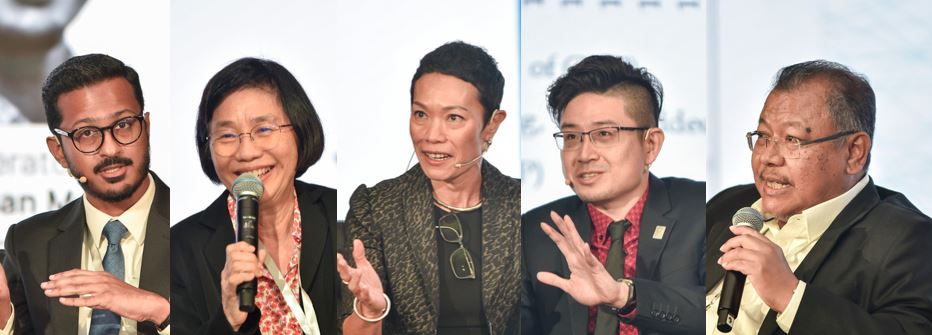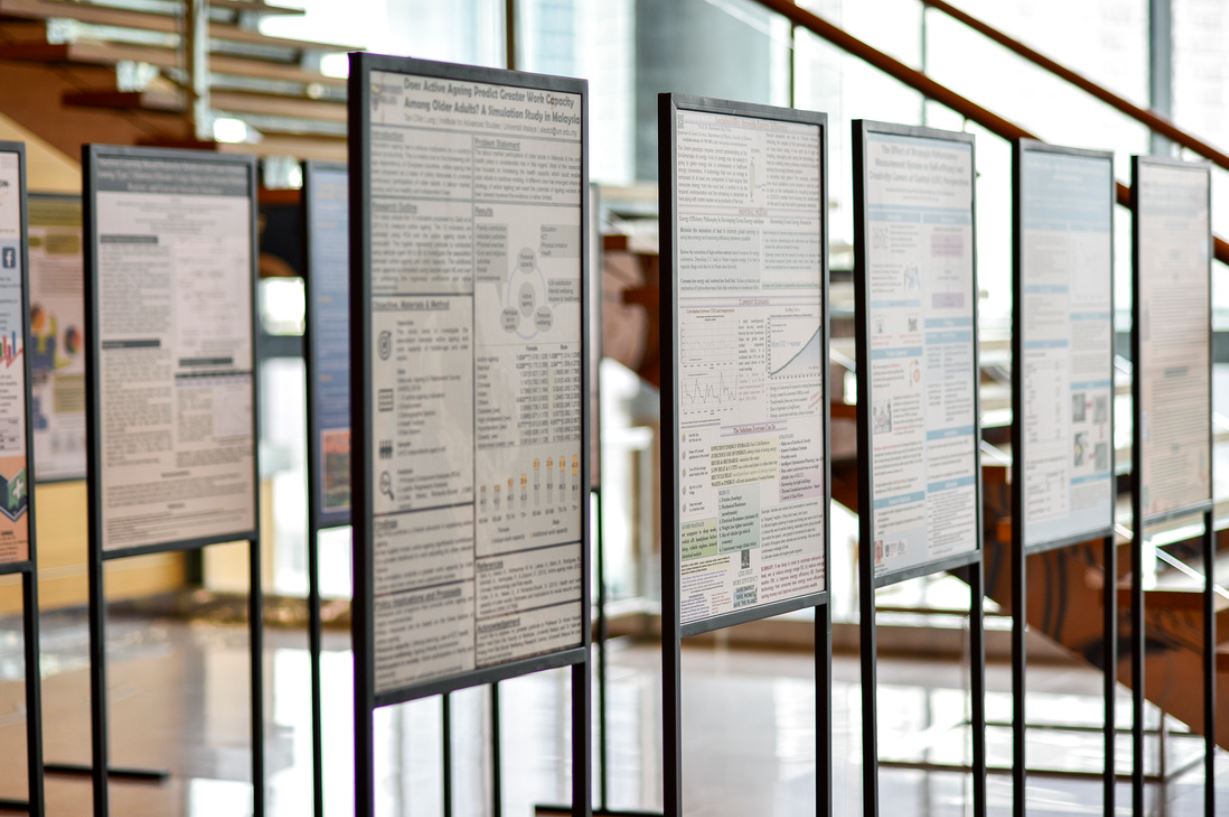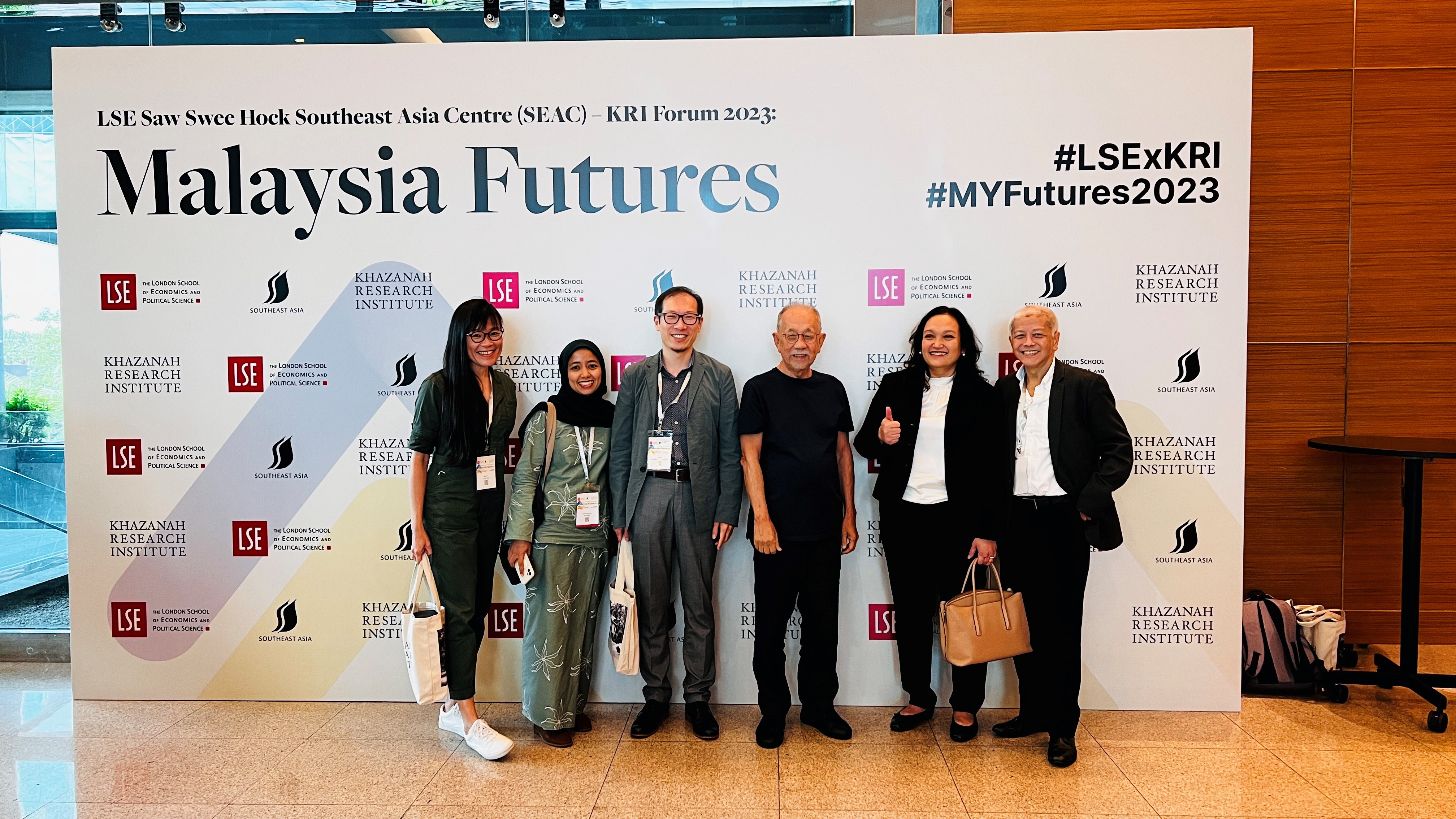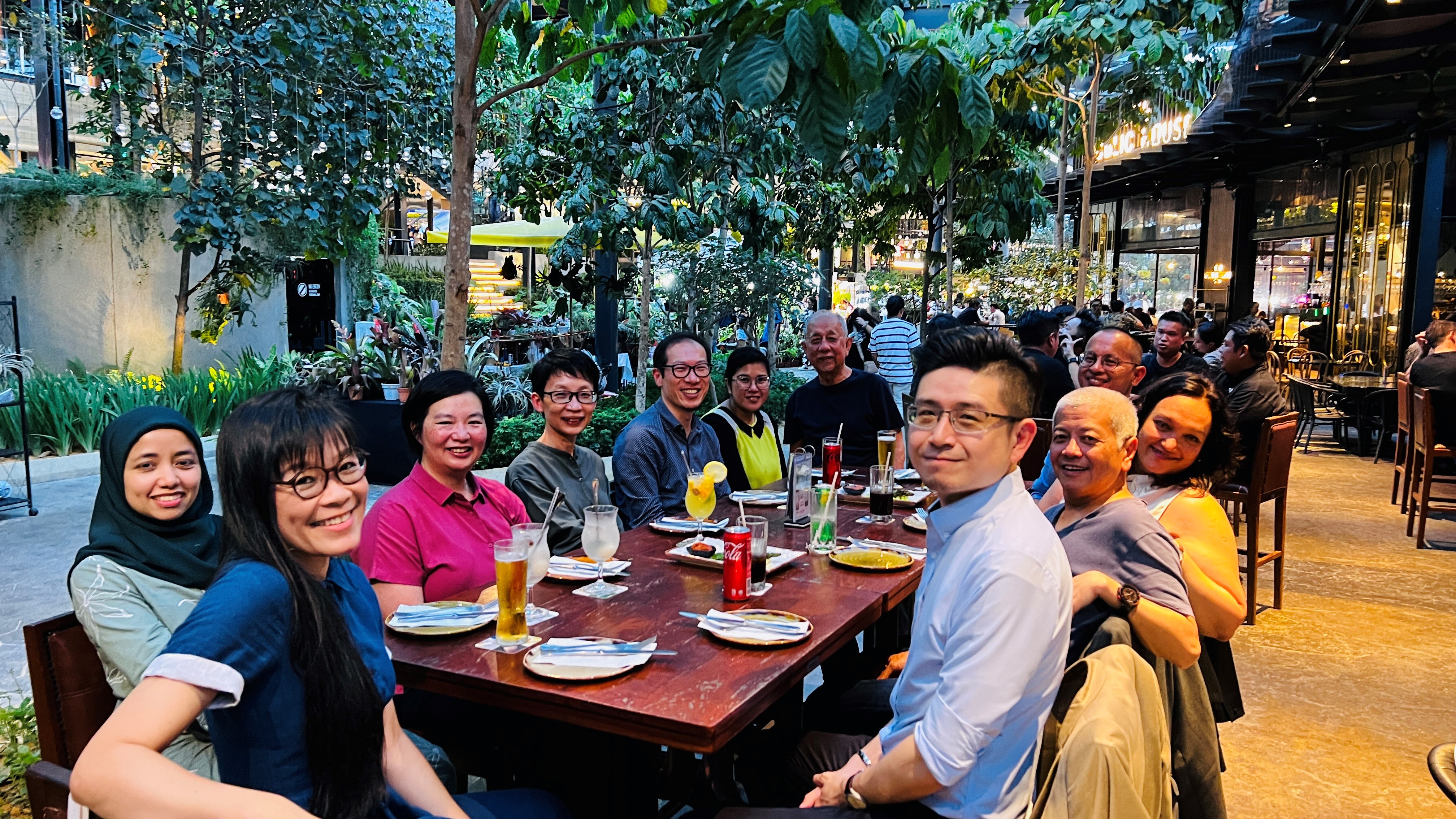On May 31 and June 1, 2023, the LSE SEAC-KRI Forum 2023: Malaysia Futures brought together over 300 leading scholars, policymakers, think tanks, thought leaders and young researchers— both in-person and virtually—to engage in riveting discourse on the possible ways in which Malaysia ‘futures’ could be imagined.
The forum comprised special addresses and conversations, and five sessions: Economic Futures, Urban Futures, Institutional Futures, Digital Futures, and Socio-Economic Futures. Distinguished panelists from Southeast Asia, including experts from Malaysia, Thailand, Japan, Brunei Darussalam, the Philippines, Singapore, and South Korea, participated in each session. The event witnessed a strong attendance from representatives of the government, academia, private industry, civil society, and international organizations.
“Now is a great time to forge new relationships among Southeast Asian Nations and understand the strengths of each country as we can be stronger as a region.”Dr Suraya Ismail
In envisioning a Malaysian Future, Dr Suraya Ismail (Director of Research, Khazanah Research Institute; Forum co-chair) highlighted several key considerations: the geopolitical standing within Southeast Asia; the balance between efficiency versus social welfare; and the role of alternative growth indicators (besides GDP) in promoting more participatory, inclusive governance. Prof. Hyun Bang Shin (SEAC Director; Forum co-chair) emphasised the importance of interdisciplinary dialogue, particularly between economics and urban studies; of informing national policies with localist perspectives; and of bringing these (inherently political) discussions to everyday citizens, beyond politicians and think tanks.
“What came up [from the various sessions] was the importance of framing problems and how to reframe the way these issues are discoursedand I think it’s really important and what best way to change the way the framing is being conducted than in a sitting together in the way that we have done in the last two days—where researchers, academics, and other expert professionals actually get a chance to sit together and have conversations about these issues together.”Prof. Hyun Bang Shin



Full session information
Lessons from other national contexts and global patterns must inform our strategy, especially as today’s realities are more complex than those that prevailed in the past.
In the opening speech, Tan Sri Nor (Chairman, Khazanah Research Institute) highlighted the forum’s focus on Malaysia ‘futures’ across the 5 domains: Social, Economic, Urban, Institutional and Digital. He described the forum as timely in light of the growing need to re-evaluate strategies to optimise opportunities in the face of new and unprecedented challenges.
Malaysia's remarkable development journey, from a colonial economy to a diversified one, was acknowledged, along with achievements in poverty reduction and the growth of the middle class. Tan Sri Nor emphasised the importance of inclusive digital systems and good governance of data for a future where everyone can thrive. He highlighted the need for people- oriented design and stress - testing in digital transformation, ensuring a truly inclusive digital future.
The video of this address can be watched here.
We are living in a time of a new Cold War… [W]e have the real threat of war because war is no longer due to the inability to resolve matters, but it is being deliberately provoked time and time again.
Emeritus Professor Jomo Kwame Sundaram's speech focused on the fact that we are living in dangerous times and highlighted the importance of thinking about the changes faced by the world today. One of the threats currently facing Malaysia stems from its transition from being part of the Trans-Pacific Partnership (TPP) trade agreement to participation in the Indo-Pacific Economic Framework (IPEF) initiative, resulting in a lack of market access for the country. Additionally, Malaysia is threatened by a very biased system, vulnerable to being jammed up. The “one-size-fits-all” rules imposed by the World Trade Organisation (WTO) are not necessarily sensitive to the needs of the country. Malaysia, alongside other developing countries, is powerless when it comes to dispute settlements and in times of public health crises. The latter was depicted through the lack of an appropriate response to address inequity in vaccine distribution.
The video of this address can be watched here.
“We are no longer Factory Asia but also Factory and Market Asia” Prof. Pavida Pananond
The Economic Futures explored the opportunities and challenges of Foreign Direct Investments (FDI) and Global Value Chains (GVC). The session asked, “Can Malaysia leverage on GVCs to advance its economic dynamism? What are the specific strategies?”. Moderated by KRI Deputy Director of Research, Nithiyananthan Muthusamy, the panellists, Dr Guanie Lim (National Graduate Institute for Policy Studies, Japan), Prof. Pavida Pananond (Thammasat Business School, SEAC Southeast Asia Forum panellist), Emeritus Prof. Tham Siew Yean (Universiti Kebangsaan Malaysia) and Emeritus Prof. Tan Sri Dato’ Seri Noor Azlan Ghazali (UKM Graduate Business School) shared their insights on how the growth of markets in Southeast Asia have produced new challenges and opportunities in the region through reorganisation of trade flows.
The panel acknowledged that ongoing geopolitical tensions have impacted the ASEAN region within GVCs. “We need to build our own narratives as resilient suppliers in order not to be cut away from GVCs” said Prof. Pavida highlighting the need for policymakers to consider multidimensionality of GVCs and different roles of domestic firms within various VCs. Prof. Tham Siew Yean stated that Malaysia needs to have strategic focus in industrial policy, “We cannot ignore FDI, but how do we hasten innovation with comparative advantage.” Dr Guanie Lim also highlighted the need to strategically manage FDIs inflows to improve sustainability, which supported by Dr Noor Azlan’s argument that economic complexity, know-hows and capabilities, can build comparative advantage for Malaysian economy.
The video of this session can be watched here.
“There are necessarily multiple urban futures and that these imagined futures are not static”. Dr Sin Yee Koh
As more human settlements will reside in urban spaces, this Urban Futures session asked, “How do we reconcile private property rights vs right to the city? Can cities create affordable and sustainable/ecological-friendly futures? What are the specific policy changes needed?”. The diverse nature of cities, the multiplicities of challenges they face, and the need for policy interventions to reflect these complexities (be it from participatory governance to climate adaptation) was the underlying thread that linked the discussion on inclusive and sustainable approaches to city-making between four esteemed panellists for the session on Urban Futures.
The session was delivered by Dr Koh Sin Yee (Institute of Asian Studies, SEAC Associate), KRI Senior Research Associate, Yin Shao Loong, Prof. Tim Bunnel (National University of Singapore) and Dr Kristian Saguin (University of the Philippines, former SEAC Speaker), and moderated by Prof. Hyun Bang Shin (SEAC Director). The panel mentioned the need to develop awareness of the major challenges in cities through data and evidence when devising policies in order for it to be supported by the general public.
The video of this session can be watched here.
“The need to build innovative institutions, and not extractive institutions” Prof. Yeoh Kim Leng
In governing growth, this Institutional Futures session asked, “When should Government intervene or retreat from the market; specific examples from housing, agriculture and manufacturing. With trade agreements, can Government act with national self-determination and sovereignty to achieve their developmental aims?”. Moderated by Yin Shao Loong (KRI Malaysia), this session featured Professor Dr Yeah Kim Leng (Jeffrey Cheah Institute Southeast Asia), Dr Kim Dong Soo (Korea Institute for Industrial Economic and Trade), Professor Chua Beng Huat (National University of Singapore, SEAC Advisory Board member), and Dr Sarena Che Omar (KRI Malaysia).
The panelists delved into the evolving role of government and its relationship with the market and emphasized the need for reforms and adjustments in the government's role in market governance. The session highlighted that these reforms should be based on the respective strengths and capabilities of both sectors.
The video of this session can be watched here.
“What changed policy decisions now, what has produced these responses on a big scale, is the national security threat posed by China.” Prof. Robert Wade
The second day began with keynote lecture from Professor Robert Wade (LSE), where he explored the resurgence of industry policy and its underlying dynamics of big power politics. He posed thought-provoking questions to the audience, exploring the lack of income convergence despite progress in non-income measures such as education and life expectancy, questioning the effectiveness of developmental policy.
Prof. Wade also highlighted the national security threat posed by China as a driving force behind the United States' adoption of protectionist industrial policy. He also pointed out the shift in stance by states in the Global North and multilateral organizations like the World Bank and IMF, who historically discouraged interventionist policies but now embrace them. Additionally, he emphasized the EU's status as a regulatory superpower with limited budgetary influence and discussed the conflicting interests of the US, Europe, and Japan in reducing dependencies on China. Ultimately, the US and European governments agree that relying solely on market allocation and restricting government intervention can lead to economic vulnerability, monopolies, and income inequality.
The video of this address can be watched here.
“As much as the digital future is imbued with potential and opportunities, so too it is imbued with threats, some of which we are unaware of, or which are unknowable, right now.” Dr Orlando Woods
The Digital Futures session explored current and emerging trends seen in Malaysia’s digital transformation, and how the public, private and civil sectors can shape the direction of digital adoption to ensure all of society thrives. The session was delivered by Adilah Junid (Microsoft), Farlina Said (Institute of Strategic & International Studies), Dr Orlando Woods (Singapore Management University), Dr Jun-E Tan (KRI) and moderated by Dr Rachel Gong (KRI).
The video of this session can be watched here.
“The way the world is going, for all the scary things that are going on, we could potentially move to a much better place for us” Prof Danny Quah
The conversation between Dr Suraya Ismail and Prof. Danny Quah (National University of Singapore, SEAC Associate) centred around the question of what we (Malaysia and other third nations) really want from the international systems, as well as recognising our agency in charting this new relationship. While discussions surrounding geopolitics have become more consequential, Prof. Quah cautioned that these conversations have been missing the point—that beyond questioning the next move of the US or China, we should instead drill down on what is it that Malaysia and other third nations demand.
The video of this conversation can be watched here.
"Creating a future where we have peace, prosperity and harmony, and at the same time not leaving anyone behind” Hawati Abdul Hamid
This last session focused on Socio-Economic Futures, addressing challenges such as low wages, low productivity, and heavy reliance on foreign workers. Moderated by Dr. Suraya Ismail (KRI), the panel included Dr. Ye Junjia (Nanyang Technological University, former SEAC Visiting Fellow), Bryan Lim (Khazanah Nasional Berhad), Hawati Abdul Hamid (KRI), and Datuk Abdul Rasheed Ghaffour (Bank Negara Malaysia).
The session provided valuable insights into the specific challenges faced in the socio-economic landscape and discussed potential strategies to improve wages, productivity, and job opportunities. It emphasized the importance of labor market policies, skills development, and addressing structural issues to achieve a more equitable and sustainable socio-economic future.
The video of this session can be watched here.
 Forum co-chair Prof Hyun Bang Shin (SEAC Director) pictured with friends of SEAC, including: Dr Suraya Ismail (Forum co-chair, Director of Research, Khazanah Research Institute, SEAC Advisory Board Member); Prof Danny Quah (NUS, SEAC Associate); Prof Beng Huat Chua (NUS, SEAC Associate); Dr Junjia Ye (NTU, former SEAC Visiting Fellow); and Alia Salleh (awardee of SEAC PG Dissertation Prize).
Forum co-chair Prof Hyun Bang Shin (SEAC Director) pictured with friends of SEAC, including: Dr Suraya Ismail (Forum co-chair, Director of Research, Khazanah Research Institute, SEAC Advisory Board Member); Prof Danny Quah (NUS, SEAC Associate); Prof Beng Huat Chua (NUS, SEAC Associate); Dr Junjia Ye (NTU, former SEAC Visiting Fellow); and Alia Salleh (awardee of SEAC PG Dissertation Prize).  Friends of SEAC join a post-forum dinner, to recap and celebrate the successful event.
Friends of SEAC join a post-forum dinner, to recap and celebrate the successful event.
Further Details
If you'd like to read more about the event, you can read the Forum Highlights, which provides a longer overview of the event.